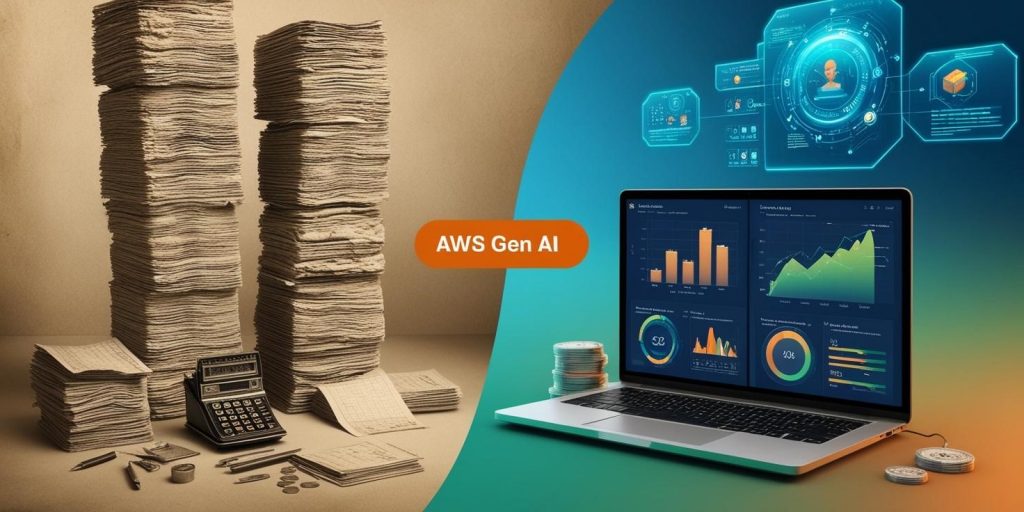Technology has transformed how we live and work. The same digital disruption is now happening across banking, insurance, and financial services. By 2025, smart machines will automate many manual tasks. This is finance automation. It will reshape the work of financial firms.
Intelligent Helpers That Learn on the Job
Robotic process automation (RPA) is software that mimics human actions. RPA bots follow rules to complete routine tasks. These include filling out forms, calculating payments, and validating invoice numbers.
In the near future, AI will enhance RPA. It will make the bots to function more intelligently. Machine learning will let bots analyze data patterns. They will learn from context and improve at tasks over time.
As this technology develops, AI-powered bots will be able to handle judgment-based work like assessing insurance claims or interpreting market indicators to advise investment strategies. Instead of just repeating scripted steps, smart automation can augment human decision-making.
Conversational AI and chatbots are another growing trend in finance automation. Sophisticated natural language processing programs will allow customers and employees to have discussions with AI agents as they would with a human colleague. AI-powered virtual assistants will be able to interpret questions, provide recommendations, and handle inquiries 24/7 through voice or text interactions.
As language models grow more advanced in coming years, people may not be able to distinguish conversations with an AI chatbot versus a human customer service rep. Virtually every financial institution will leverage conversational AI to improve experience and efficiency.
Real-Time Reporting and Predictions
A great deal of effort in finance goes into gathering data from various siloed systems, processing it, and compiling it into regular reports and dashboards for business leaders. However, much of this work tends to be extremely tedious and manual.
Automation will transform reporting by enabling real-time data pipelines from hundreds of structured and unstructured data sources. Machine learning algorithms will rapidly process, organize, and analyze information to surface important insights and trends.
Instead of waiting days or weeks for manual reports, executives will have interactive business intelligence dashboards with up-to-date visualizations on all key performance metrics. Data-driven decisions can happen much quicker when leaders have instant access to automated reports.
Looking ahead, predictive analytics will become an invaluable tool. By analyzing internal datasets, market indicators, regional trends and other factors, AI systems can create models to forecast business scenarios. This capacity to simulate different versions of the future will allow financial institutions to preempt challenges and prepare more intelligently.
Saving Money and Effort
Behind the scenes, financial institutions grapple with tremendously complex and labor-intensive processes that demand substantial human resources. Operational and compliance functions like financial controlling, audits, regulatory reporting, and fraud monitoring employ huge teams.
Intelligent automation will help dramatically reduce the manual effort required for these activities. Software robots can rapidly zip through huge volumes of transactions to perform reconciliation, period-end close processes, and expense management with no errors.
Automating calculation-heavy tasks also provides greater accuracy. Spot checks and internal audits happen continuously instead of periodically. Documents and contracts get scanned and validated in real time.
Industry research suggests automation will lower costs by 15-25% over the next three years for financial institutions. These significant savings allow banks, insurers, and other players to invest in better customer experiences, innovative products, and responsive business models rather than just trying to manage unwieldy backend processes.
Safeguarding Against Threats
As finance becomes increasingly digital, organizations handle growing amounts of sensitive customer data. Protecting networks against cyber threats and ensuring strict data privacy protocols are more vital than ever.
AI algorithms help identify suspicious patterns of account activity that could indicate attempts at fraud, hacking, or financial crimes. By flagging anomalous transactions and investigating them quickly, institutions prevent problems down the road.
Natural language processing programs also scan the dark web and hacker forums to detect emerging cyber threats. Security teams gain critical time to shore up defenses against new forms of attack.
Regulatory technology (RegTech) solutions help automate compliance processes and reporting for regulators as well. Instead of manual tracking and paperwork, machines handle info gathering, report creation, risk quantification, and due diligence for regulations like AML and KYC. This improves accuracy while lowering costs.
New Roles for Humans
While automation displaces certain routine tasks, the technology also creates new types of jobs. Workers have more capacity to build customer relationships, create business strategy, and guide technology tools to add maximum value.
Of course, a shift of this magnitude causes growing pains. Existing employees need training to work alongside intelligent systems. Experts advise financial institutions to integrate automation in phases. Starting with contained pilot projects enables teams to get comfortable before expanding across wider business areas.
Providing ample support and upskilling opportunities helps minimize disruption as roles evolve. With sound change management, humans and machines make a powerful combination where each focuses on their strengths.
FAQs
Q. What does intelligent process automation mean?
A. Intelligent process automation combines software robots, AI, and machine learning to handle a range of complex finance tasks in dynamic, knowledge-driven ways beyond basic automation.
Q. How can automation improve risk management in finance?
A. Automation tracks transactions, detects fraud indicators, monitors compliance breaches, and surfaces cyber threats to provide robust protection and risk visibility.
Q. What new roles are emerging from finance automation trends?
A. As software handles repetitive work, human team members transition into more innovative roles in strategy, customer advisory, business development, and steering automation to create stakeholder value.
Q. What change management challenges do financial firms face with automation?
A. Main transitional hurdles involve costs of tools, user acceptance/training, gaps in technical vs social/emotional skills, integrating multiple technologies, and data governance.
Q. How can financial institutions ensure automation projects succeed?
A. Critical success factors include alignment to business objectives, good design thinking, measured rollout pace, ample training/support for users, progress tracking, maintaining focus on value over technology.
Conclusion
The automation patterns shaping financial services target multiple benefits – improved customer experience, higher efficiency, increased data security, and responsive business models. Though this technological change brings transitional challenges, the long-term payoffs make the shift invaluable. Financial institutions that embrace automation will likely gain competitive edge and succeed in the digital-first era unfolding in the coming years.



